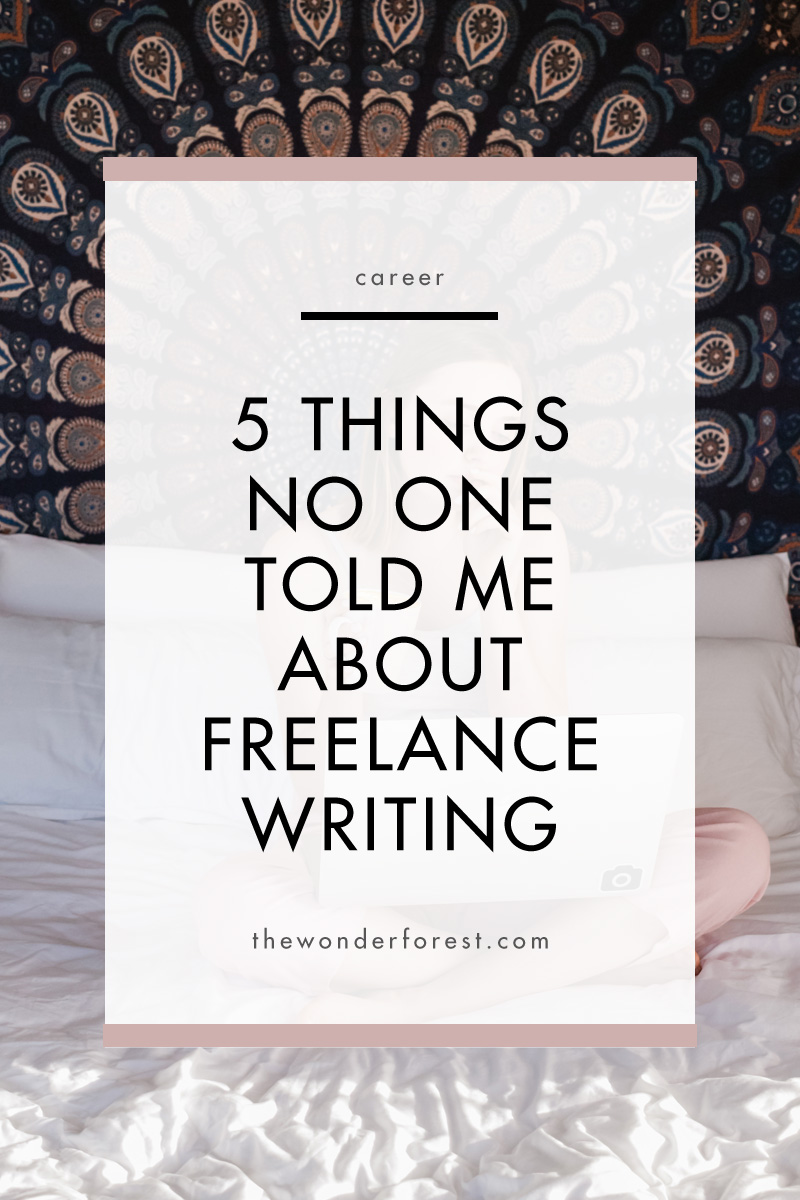
I’m a freelance writer working for a marketing company. I act as both writer and editor. Not only that, but I have clients I write for on the side.
I’ve been writing since I was a young kid, developing characters and fantasy lands in hopes of one day writing my own novel. That hasn’t happened (yet) so I decided to take a different path—freelancing.
It’s something I’ve been doing for about two years now. And there’s a lot of things I wish I’ve known before I dived in head first.
So you can start off on the right foot with freelance writing, here’s what no one told me it’d actually be like.
It’s a Bumpy Beginning
Starting out, I did what almost every aspiring freelancer does—start a blog. My own corner of the Internet to lay out my thoughts and help people.
Long story short, blogging wasn’t for me. It takes a lot of time building one from scratch. Not only that but the amount of effort I had to dedicate to marketing became too much. I didn’t spend much time writing either.
I felt like I could advance my career better by seeking opportunities outside of blogging. After deciding that, I felt a tad lost. Blogging kickstarted a lot of careers for some so without having my own blog, I didn’t know where to turn.
I started looking at job boards. Luckily, I landed a freelance writing position for the place I’m employed at now. I did a test article and got in! From there, I joined LinkedIn, which helps secure more clients.
Moral of the story is: it wasn’t an easy beginning. I didn’t have an extensive portfolio, just what I write in my spare time. Everything I learned, I learned either on the job or from the internet. It’s important to try different outlets like blogging or even microblogging. Just because it didn’t work for me doesn’t the same for you.
You’ll Undersell Yourself
Being a freelance writer is no easy gig. There’s a lot of competition and sometimes, pure skill isn’t enough. Those with bachelor degrees are preferred, even for lesser-known publications.
With the pressure to land more clients, I undersold myself a couple of times. Let me tell you…it did not feel good.
At first, I would be excited to land a new job. Afterward, I felt like I cheated myself. I did a lot of writing, put in a lot of effort conducting valid research—all for little pay. Setting prices is complicated, that’s for sure. I like to think I’m a good writer, familiar with SEO, can conduct research but I haven’t been in the game professionally for long. Therefore, I don’t charge triple digits.
Right now, I charge $50 for 1,000 words. Personally, I charge based off of my experience. As I gain more work then I’ll start charging more.
Clients Aren’t Always Nice
Being an editor for the marketing company, I constantly see other writers’ work rejected for unnecessary reasons. Sometimes, clients are nasty. They’ll flat out say, “This sucks and I could’ve written this 10x better in less time.”
Yeah, it’s bad sometimes.
They can be really impolite and make you think twice about continuing on as a writer. If you deal with this, heed my advice: work through it. Take two or ten minutes to let out your frustration or sadness. Afterward, read their objections intensely. As hard as it’ll be, try to understand their point of view. Then, give them what they want.
The more you try to convince them the writing is acceptable the way it is, the more they’ll argue. Even if they’re being nasty, be courteous. There’s no point in adding fuel to the fire since it’s your professional reputation at stake.
You’re Technically a Ghostwriter
One major thing I learned right off the bat is you won’t be putting your name on everything you write. You act as a ghostwriter a lot of the time. Unless otherwise stated, clients are buying the rights to your work. That means once they pay you and you hand over the article, it’s theirs to do with as they please. And that means putting their name on your work.
At first, this bothered me. I wanted my name on every piece I churned out.
Soon after, I learned it’s just the name of the game. I’m getting compensated for what I love to do so in a way, it makes up for it.
For those troublesome clients, it can be harder to deal with. They didn’t treat you the best but there they are…acting like they wrote their own content. But hey, it comes with the territory. That’s why it’s also important to charge what you’re worth.
There Are Multiple Career Paths to Take
Freelance writing is just the beginning. Knowing where you want to take it is a tough journey.
You could become a novelist, a technical writer, a magazine editor…the list goes on and on. Freelancing is a great start, don’t get me wrong. But turning it into a sustainable full-time job is difficult since work or clients are never guaranteed.
You need a plan B. A career path that’ll lead you to stability and financial security. Knowing this in the beginning would’ve given me a lot more to strive for.
What’s something you wish you’ve known before starting a new job or career?
Last Updated on
